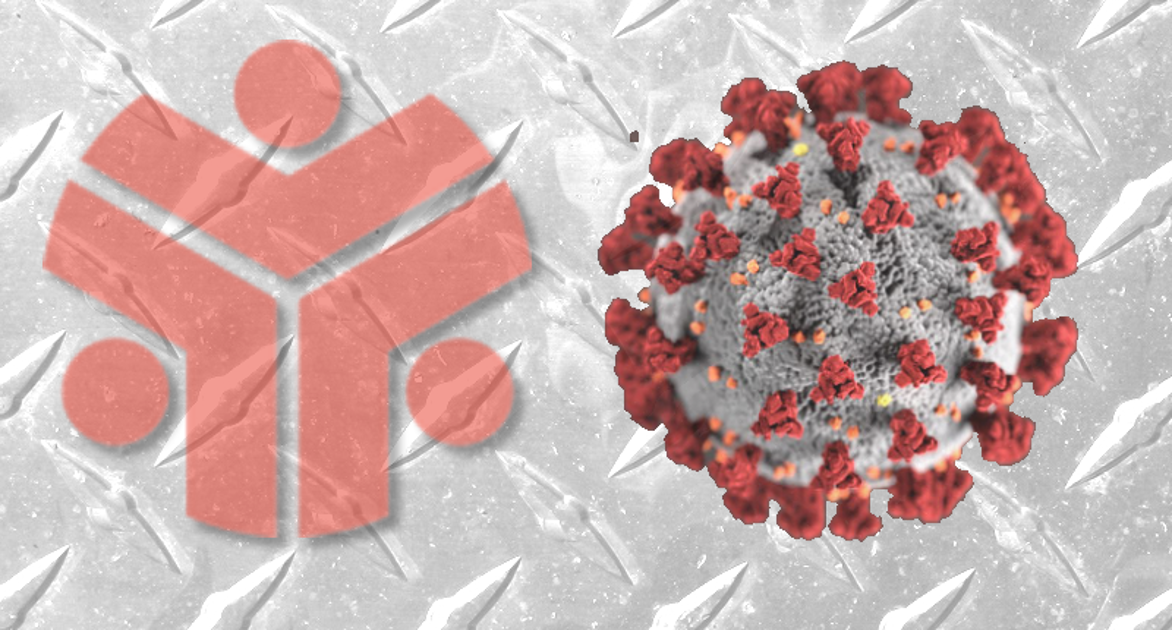We would like to draw your attention to the ETUC declaration on the COVID-19 Outbreak, copied in full below.
ETUC Declaration on the COVID-19 Outbreak
Meeting in Brussels on 9 -10 March 2020, the ETUC Executive Committee appealed for calm in the wake of the COVID-19 outbreak and urged people to follow the advice of the competent health authorities globally.
The Executive Committee welcomed the steps taken thus far both at EU and national level, but insists that all further necessary measures be adopted to stop and contain the spread of the virus as well as measures put in place to manage the health and the economic effects of this unprecedented situation. We call on the authorities to take a more coordinated and active role to urgently support economies across Europe. We cannot accept that the economic burden of this crisis, which is likely to be far more severe than the financial crisis of 2008, falls on the public finances, public services, and ultimately the workers of Europe. We cannot accept further austerity and cuts because of the COVID-19 crisis.
Emergency measures from the European Commission and other EU institutions including the ECB, and Member States must be put in place such as relaxing the fiscal rules under the Stability and Growth Pact and state-aid rules, while adopting subsequent legislation to release EU funding immediately to help those worst affected. This must include financial support to workers who are quarantined, suspended from their jobs or made redundant because of COVID-19. In this respect, particular attention must be paid to precarious and non-standard workers, who are often excluded from the same rights and protections as other workers.
The Committee underlined the deepening concern about the implications for workers. Many of our members are in direct contact with the public and, as such, are at risk of contracting the disease and of passing it on to others. We need to ensure that their health and safety is our first priority. We call on all employers to apply the principles of prevention, implementing all appropriate measures to protect the health of workers in the workplace, in particular for those who are at high risk of exposure themselves, including all health care workers.
Additionally, the Committee called for urgent measures to ensure that all workers who present with symptoms, who are placed in quarantine, as well as those who are obliged to stay at home to care for family members who are ill or in quarantine, the majority of whom are women, can take leave without fear of losing their jobs or income. Affected workers in sectors where social dialogue, including collective bargaining, is respected will be covered as per existing agreements.
This is not the case however for hundreds of thousands of other workers, including those who may not be entitled to sick-pay, those in low-paying sectors or precarious employment situations, who are highly dependent on income from work. It could be that some workers, through no fault of their own, may simply be unable to afford to self-isolate. Finally, the Executive Committee urged governments to be vigilant and ensure that unscrupulous employers do not use COVID-19 to justify cutbacks or mass redundancies. It is also imperative that employers assume their share of the financial burden.
Considering the imperative to ensure that virus containment efforts succeed, it is essential that workers do not experience income interruptions arising from COVID-19. We believe that it is of utmost importance therefore to uphold the net income of all affected workers so that they are in a position to carry on with their lives.
The COVID-19 outbreak underlines the need to reinforce universal and solidarity based public health systems, as part of the EU’s social model and commitment to quality public services. More public investment is needed to ensure sufficient levels of well-trained staff and access to healthcare for all.
We welcome the commitment to taking a flexible approach to fiscal targets announced by the EU recently but sustained political support for well-functioning public health systems is also needed. We need Member States and the EU to take whatever economic measures are needed to stop this public health emergency turning into a global recession with disastrous consequences for workers and their families everywhere.
In this respect, social partners must be properly informed and consulted in due time and in such a way that they can contribute to guaranteeing the interests of working people particularly when dealing with ad hoc social and economic measures which may arise from this crisis.
Contact: press and communication officer Andrea Husen-Bradley
